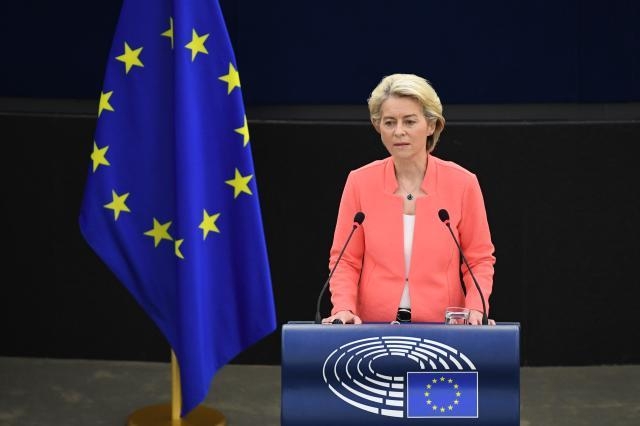“Strengthening the soul of our Union” is the title given by the European Commission’s President, Ursula von der Leyen, to her annual State of the Union address to the European Parliament, on 15 September 2021.
What are the main issues of interest for the Euro-Mediterranean region, apart from the COVID-19 pandemic and the climate crisis? Unsurprisingly, Ursula von der Leyen referred to the new EU Agenda for the Mediterranean, published in early February this year, to “provide stability in our neighbourhood”. She also spoke of “continuing to work on the different aspects of our relationship with Turkey,” a diplomatic rhetoric to express that while there are relationship problems, a divorce procedure will not be openly launched.
In the social field, she announced a ban on the European market on products made with forced labour. On the domestic front, she praised the European Pillar of Social Rights – whose action plan was presented early March – to ensure “decent jobs, fairer working conditions, better healthcare and better balance in people’s lives”. The Commission will come forward with a new European Care Strategy. Ursula von der Leyen also stressed that the pandemic was a “terrifying time” for “too many women,” “with nowhere to hide, nowhere to escape from their abusers”. By the end of 2021, the EU plans to propose a law to combat violence against women – from prevention to protection and effective prosecution, online and offline.
Migration was not forgotten – of course – with a call on the Member States to make speedy progress. Finding common ground since the Commission presented, on 23 September 2020, the New Pact on Migration and Asylum, has been “painfully slow”, according to the Commission’s President. A Pact considered by Ursula von der Leyen as “a balanced and humane system that works for all”. A claim that EuroMed Rights has vigorously disputed from the outset, and later in October 2020, November 2020, January 2021, and May 2021, with numerous evidence-based arguments and simulations. The soul of the EU also lies in the way the Union treats migrants at its borders.

